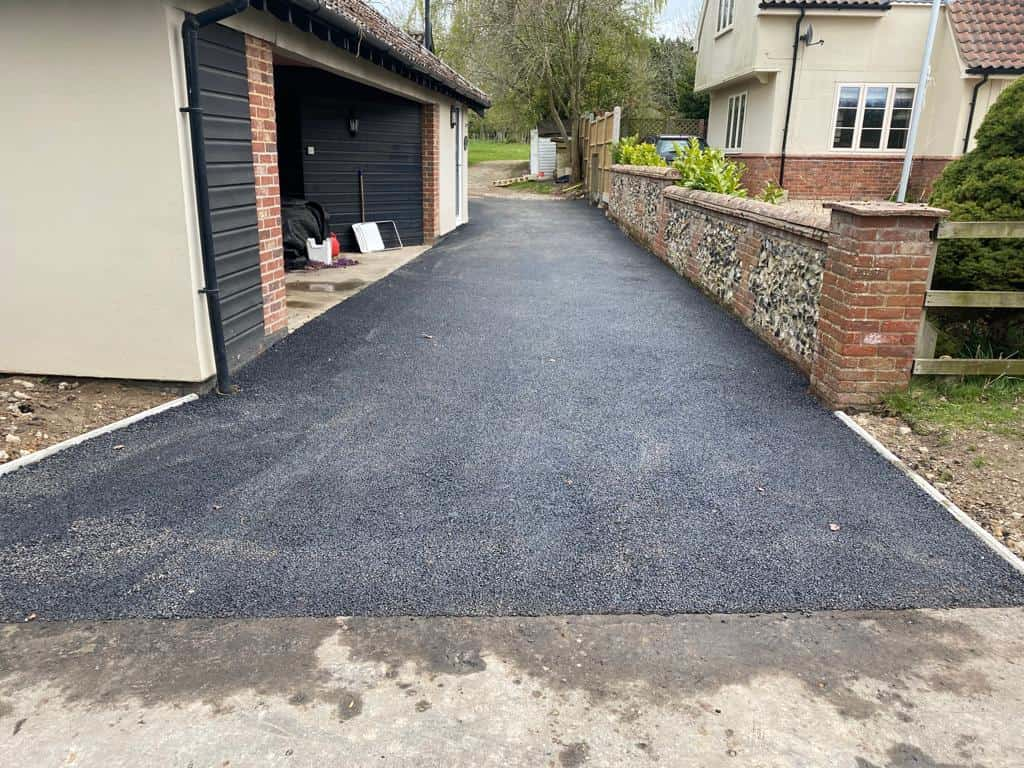Key Signs Your Tarmac Driveway Needs Resurfacing
Introduction
A tarmac driveway is known for its strength, smooth finish, and long-lasting performance — but even the most durable surfaces will eventually show signs of wear. Over time, exposure to the British weather, heavy vehicles, and general use can cause gradual deterioration that affects both the appearance and functionality of your driveway.
At Sheppey Driveways, we help homeowners across Sheppey, Kent, restore their tarmac surfaces to a safe, attractive, and durable condition. In this article, we’ll explore the key indicators that your tarmac driveway may need resurfacing — and why timely attention can save you time, money, and hassle in the long run.
Understanding the Lifespan of Tarmac
Tarmac, also known as asphalt, is designed to withstand years of traffic and weathering. However, its lifespan can vary depending on factors such as installation quality, maintenance frequency, and environmental conditions. Regular upkeep can extend its longevity, but when wear becomes too advanced, resurfacing becomes the most effective solution to restore performance and appearance.
Cracks and Splits in the Surface
The First Warning Sign
Small cracks may seem harmless at first, but they’re one of the earliest signs your tarmac is starting to age. These fractures often develop due to temperature changes — the material expands in heat and contracts in cold, causing stress over time.
If left untreated, water can seep into these cracks, freeze during winter, and widen the gaps. This process gradually breaks down the surface and weakens the base layer underneath.
When Resurfacing Becomes Necessary
Once cracks spread across large areas or merge into networks of fissures, simple patch repairs are no longer effective. At this point, resurfacing your tarmac driveway with Sheppey Driveways ensures a smooth, strong, and watertight finish.
Uneven or Sunken Areas
Why It Happens
Over years of use, heavy vehicles, poor drainage, or shifting ground can cause sections of your driveway to sink or dip. These uneven areas not only affect the look of your driveway but can also lead to water pooling — accelerating further damage to the tarmac.
How Resurfacing Helps
Resurfacing involves applying a fresh, even layer of tarmac that restores the correct gradient and eliminates dips. This ensures proper water runoff, improving both appearance and functionality.
Fading Colour and Surface Oxidation
The Visual Clue
One of the most visible signs of tarmac ageing is colour fading. Newly laid tarmac has a rich, deep black appearance, but over time, exposure to sunlight and oxygen causes it to turn grey. This process, known as oxidation, hardens the surface, making it more brittle and prone to cracking.
Why Resurfacing Is the Best Solution
While a faded driveway can sometimes be cleaned and sealed, resurfacing provides a long-term fix by renewing the material’s integrity and restoring its original dark, uniform finish.
Standing Water and Drainage Problems
A Functional Concern
If you notice water collecting on your driveway after rain, it’s a strong indicator that the surface has lost its shape or drainage efficiency. Pooled water not only looks unsightly but can also penetrate the tarmac, softening the layers underneath and causing further deterioration.
The Resurfacing Advantage
Resurfacing allows professionals like Sheppey Driveways to correct slope issues and restore effective water drainage. This prevents long-term damage, reduces the risk of frost-related cracking, and ensures your driveway remains safe and stable.
Loose Aggregate or Raveling
What It Means
Over time, you may notice small stones or loose granules coming away from the tarmac’s surface. This process, known as raveling, indicates that the binding bitumen has started to deteriorate, reducing the surface’s cohesion and durability.
Why It Matters
Once the aggregate begins to loosen, the surface becomes rougher, less resistant to traffic, and more vulnerable to water damage. Resurfacing replaces the compromised layer with a new, properly bonded surface that restores strength and longevity.
Potholes and Structural Wear
The Advanced Stage of Damage
Potholes are one of the clearest signs that resurfacing is overdue. They form when water penetrates beneath the surface and erodes the underlying base layer. Each passing vehicle worsens the damage, creating larger holes and posing safety risks.
How Resurfacing Solves the Problem
Potholes can’t simply be filled indefinitely — resurfacing ensures that the damaged layer is removed, repaired, and replaced with new, high-quality tarmac for a flawless, long-lasting result.
Ageing Driveways Beyond Repair
Even if visible damage seems minimal, older driveways (typically over 15–20 years old) can lose their flexibility and structural stability. If you find yourself repeatedly carrying out small repairs, resurfacing the entire driveway is often a more cost-effective and lasting solution.
At Sheppey Driveways, we assess the condition of your tarmac and provide expert recommendations to restore your surface to peak condition.
How Sheppey Driveways Can Help
Sheppey Driveways specialises in resurfacing tarmac driveways across Sheppey and the surrounding areas of Kent. Our experienced team uses high-quality materials and proven techniques to deliver smooth, durable, and weather-resistant finishes that stand the test of time.
Whether you’re dealing with cracks, dips, fading, or structural wear, our resurfacing solutions will revitalise your driveway, enhance your property’s appearance, and ensure reliable performance for years ahead.
Conclusion
A tarmac driveway is an investment in your property’s functionality and kerb appeal. Recognising the signs of deterioration — such as cracking, fading, and uneven surfaces — allows you to act before minor issues turn into costly repairs.
For professional driveway resurfacing in Sheppey, Kent, contact Sheppey Driveways. Our expert team can assess your driveway, recommend the best resurfacing approach, and restore your tarmac surface to a smooth, durable, and visually appealing condition.
Call us on: 01795 718 688
Click here to find out more about Sheppey Driveways
Click here to complete our contact form and see how we can help with your Driveway needs.

